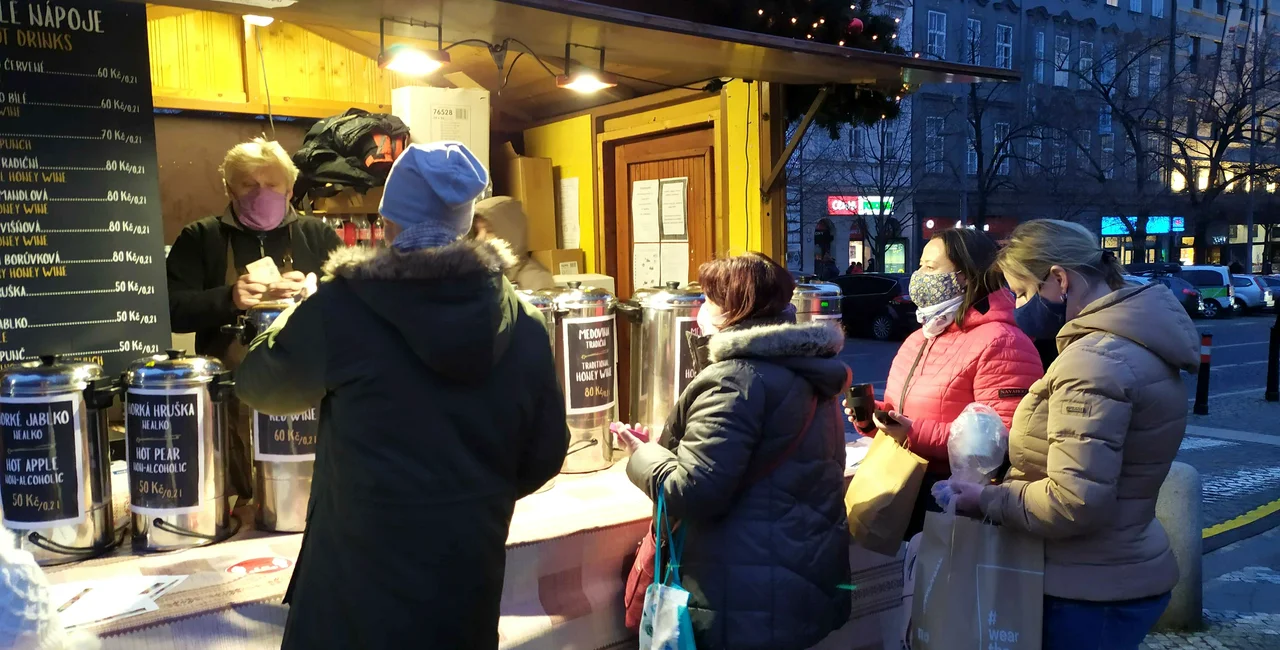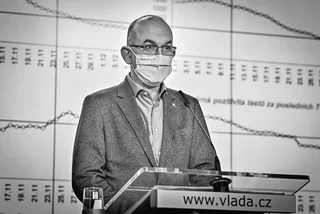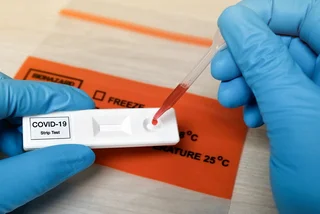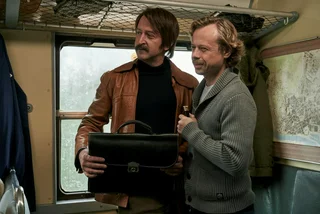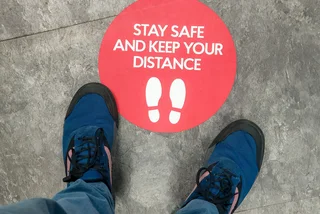Top news stories for Dec. 8, 2020, compiled by CTK
Restaurants must now close by 8 p.m. instead of 10 p.m.
Restaurants and bars in the Czech Republic must now close at 8 p.m. starting Wednesday, instead of current 10 p.m., Health Minister Jan Blatny told the press yesterday, citing the cabinet's decision in reaction to the frequent breaching of COVID restrictions by catering services.
Referring to the violation of restrictions, Blatny (ANO) said that restaurants have installed heated tents at their take-away windows for customers to consume meals. Some bars were overcrowded despite a directive limiting the permitted number of visitors. At marketplaces, too, meals and alcohol have been consumed in violation of the rules, and these will be banned as of Wednesday as well, Blatny said.
The Health Minister asserts these claims, even though police spokesperson Eva Kropáčová told the press this past weekend, "We did not encounter any violations and did not see any restaurants open after the 10 p.m. deadline."
People may take antigen test for free once every five days
Antigen tests for COVID-19 will be available to all residents between December 18 and January 15, the cost will be covered by public health insurance and people can undergo the test once every five days, according to a special measure that the government approved yesterday. People who recovered from the new coronavirus infection will not be tested for 90 days after their recovery.
Like with COVID-19 testing in homes for the elderly and other social care homes that began in mid-November, some results will have to be confirmed by a PCR test, for example if a person without symptoms tested positive or if a person with symptoms tested negative.
Health Minister Jan Blatny (ANO) said after a government meeting today that the new methodology of the European Centre for Disease Prevention and Control (ECDC) considers antigen tests equal to PCR. When the risk index calculation starts to be affected by this new method, the index, which is between the current third risk level and the worse fourth level, is likely to improve.
Oldest Czech citizen dies at the age of 109
The oldest Czech in the country, Marie Holikova, died in her home on Sunday at the age of 109, Blizkovice mayor Sarka Jezkova has said, confirming information from Denik.cz.
She told CTK that Holikova had her sight and hearing impaired and was confined to bed, but she was interested in the people and events surrounding her. When Jezkova congratulated her on her birthday in July, Holikova asked questions about the COVID pandemic and also other affairs, including Brexit. She watched TV until June.
Born in Blizkovice on July 15, 1911, Holikova was the oldest of three siblings. She worked in agriculture. She married in 1937, had two sons, four granddaughters and several great grandchildren and great-great grandchildren.
According to current information, the oldest living Czech in the country is a 108-year-old woman from Prague.
Film about Vaclav Havel awarded at ROME RIFF festival
The film Havel by Czech director Slavek Horak received the Best Feature Film Award at the Rome Independent Film Festival (RIFF) last weekend, the ANSA agency has reported.
"It is a scarce example of a biographic film that does not illicit uncritical praise," the jury said, highlighting also the visual and music aspects of the work. The film was also among the three movies pre-selected by the Czech Film and TV Academy to represent the Czech Republic in the Academy Awards. However, it was Charlatan by Agnieszka Holland that was chosen.
The film is set between the Prague Spring in 1968 that marked the period of liberalization in the then communist Czechoslovakia, and the Velvet Revolution in 1989 that put an end to the communist regime that same year. It tells the story of Vaclav Havel before he became the first Czech president and focuses also on the private life of the former president, namely the relationship with his first wife Olga.
Horak did not intend to make a "portrait of a statesman", he said. However, a group of Havel's friends disagrees with the film, arguing that they are shocked by how Havel is depicted.
Government campaign against COVID-19 'disinformation' launches
Government radio, TV and press campaigns will start tackling 'disinformation' and 'fake news' related to the coronavirus, but a large campaign for which the government has allocated CZK 50 million will start next year as the contractor is being selected, Health Minister Jan Blatny (ANO) has said.
The ministry refutes fake news on its website and social networks, Blatny said. Manipulatori.cz server editor Jan Cempera says that arguments and relevant sources are missing.
Some 30 percent of all 'disinformation' targets vaccines, Blatny said. "The three most common concerning COVID are that it has been developed in a too short time, it will cause the disease and it is dangerous," he said, arguing that the vaccine is not completely new as other coronaviruses exist as well and the European Medicines Agency (EMA) guarantees that the coronavirus vaccine will meet regular standards. He asserts this even though there has never been an mRNA vaccine developed and put into worldwide use.
Deputies as well as experts underline the importance of information campaigns that should aim mainly on the people who hesitate whether to get vaccinated. At least 60 percent of the population need to be vaccinated to assure collective protection and prevent the virus from circulating in the society.












 Reading time: 4 minutes
Reading time: 4 minutes 